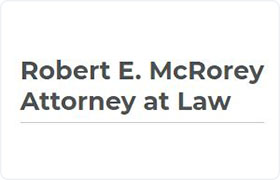New Century Bankruptcy Lawyer, Kansas
Sponsored Law Firm
-
 x
x

Click For More Info:
-
Robert E. McRorey Attorney at Law
108 E Cedar P.O. Box 61 Olathe, KS 66051» view mapBankruptcy & Debt Law Providing Real Legal Solutions
At The Law Office of Robert E. McRorey, we are dedicated to solving the legal problems of our clients.
800-918-6860
Includes: Bankruptcy Litigation, Commercial Bankruptcy, Consumer Bankruptcy, Dissolution
Michael Grear
Consumer Protection, Corporate, Consumer Bankruptcy, Bankruptcy
Status: In Good Standing
FREE CONSULTATION
CONTACT Robert McRorey Olathe, KS
Robert McRorey Olathe, KS AboutRobert E. McRorey Attorney at Law
AboutRobert E. McRorey Attorney at Law Practice AreasExpertise
Practice AreasExpertise
